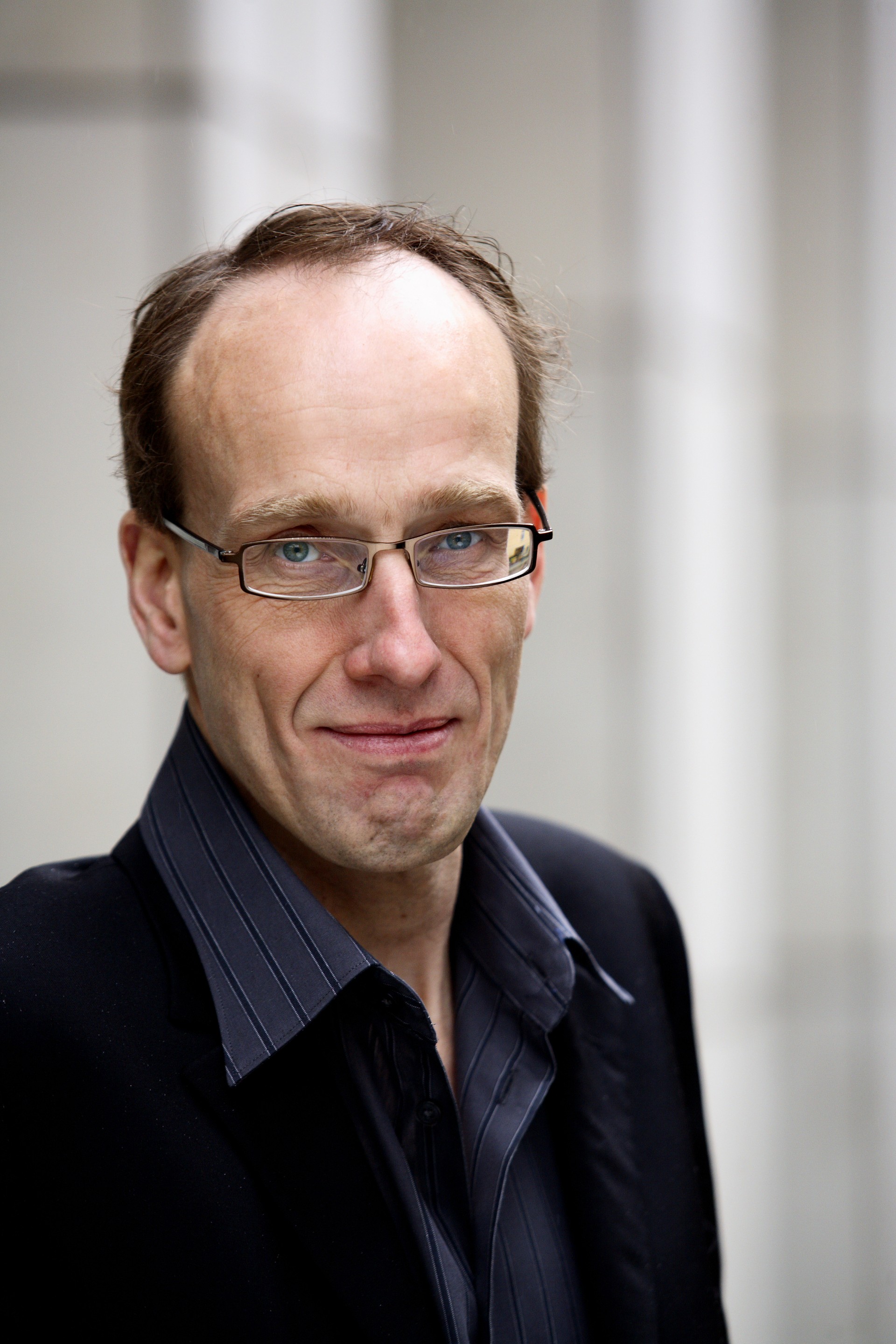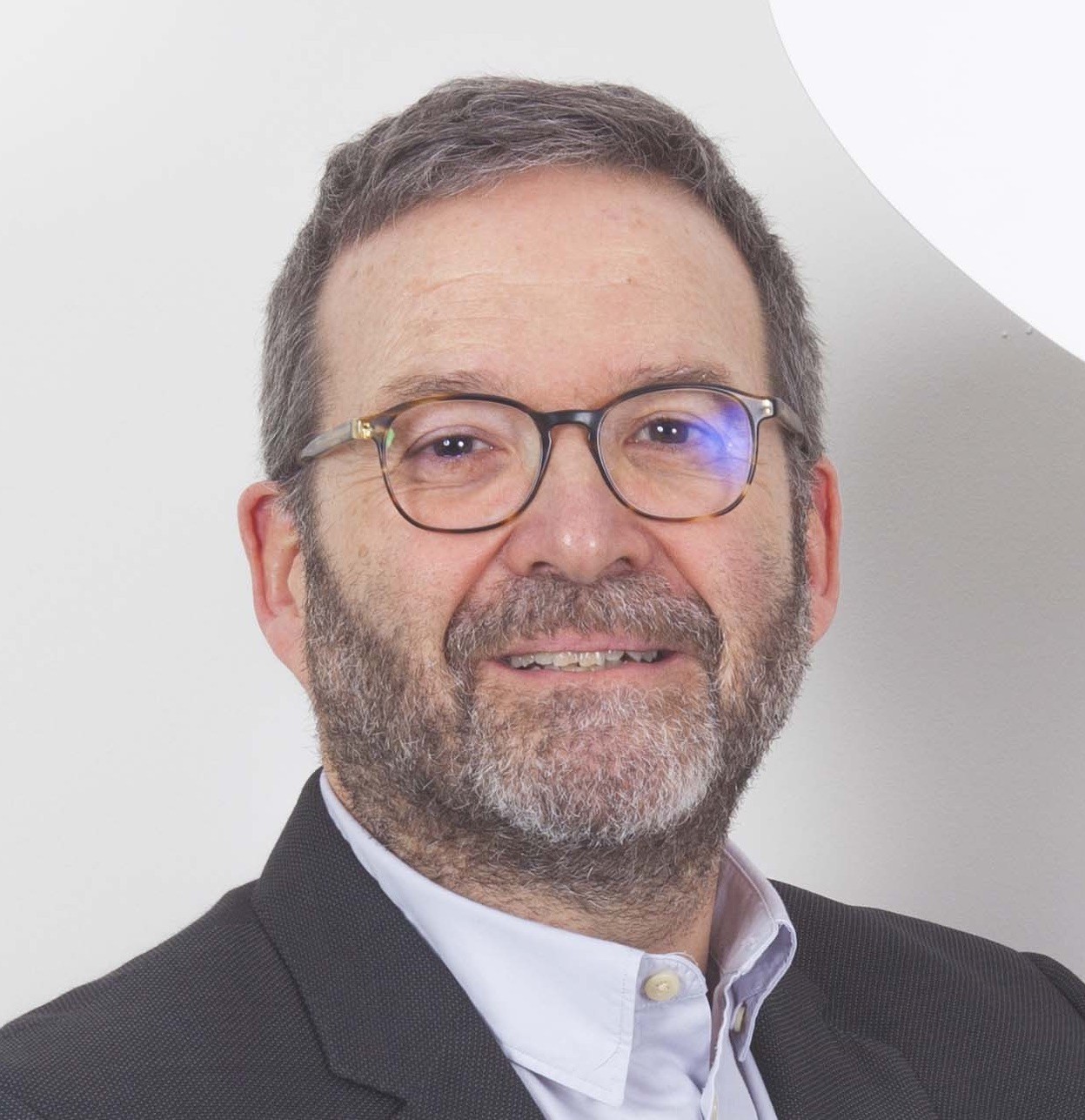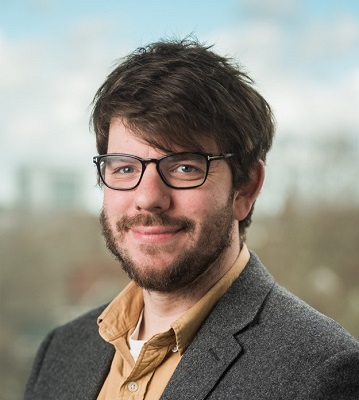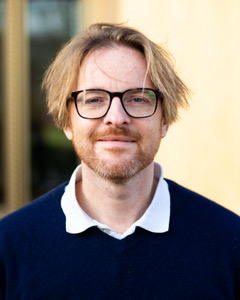Speakers

Georg Northoff
The Royal’s Institute of Mental Health Research (IMHR)
Our human self and its brain - Will Artificial Intelligence have a self?
Georg Northoff is a philosopher, neuroscientist and psychiatrist, holding degrees in all three disciplines. He works in Ottawa/Canada holding a Canada Research Chair for Mind, Brain Imaging, and Neuroethics. He is a Fellow of the Royal Society of Canada. His research focuses on the relationship between brain and mind. The question driving him is: “why and how can our brain construct mental features like self, consciousness, etc.” To address the brain-mind relationship he developed his novel and unique Spatiotemporal Neuroscience and Psychopathology where time-space are shared by brain and mind. He is also one of the leading figures in linking philosophy, psychiatry, and neuroscience having developed non-reductive neurophilosophy and the world-brain relation as answer to the mind-body problem. He authored over 400 journal articles and 20 books which are translated into several languages including “Neuro-philosophy and the Healthy Mind” (2016) Norton Publisher, and “Neurowaves” (McGill”) (2023).
Our human self and its brain - Will Artificial Intelligence have a self?
Our self is the core of our mental life. It relates us to ourselves, our body and also to the environment. Various neuronal and psyhcological mechanisms have been discussed and will be presented in my talk. Moreover, changes in these mechanisms go along with changes in the self as in mental disorders like depression and schizophrenia. Does current artificial intelligence have a self? We do not know. Based on the relational nature of the human self spanning across hte divides of environment, body, brain and mind, I postulate that current AI does not have a self or a sense of self. However, I do not exclude it principally that future AI versions will develop a sense of self.

Sami Gülgöz
Koç University
What is memory for? Revisiting Baddeley’s 1988 question
Sami Gülgöz is a Professor of Psychology at Koç University. He received his undergraduate degree in Psychology from Boğaziçi University in İstanbul, Turkey, and his MA and Ph.D. degrees in Experimental Psychology from the University of Georgia in the USA. Between 1989 and 1993, he worked as an Assistant Professor at Auburn University, Alabama, USA, after which he started working at Koç University. He served as the Dean of the College of Social Sciences and Humanities between 2008-2014. His current research focuses on memory and its relationship with social and personality factors, particularly concentrating on the functions of remembering, memory for public events, and predicting the future. He is a fellow of the Association for Psychological Science and the Psychonomic Society.
What is memory for? Revisiting Baddeley’s 1988 question
In the seminal volume 1 of Practical Aspects of Memory, Alan Baddeley lamented the lack of awareness that humans are products of evolution and argued that we should ask ourselves what function memory serves. Almost 40 years later, we have made some progress in studying these functions, though whether they are sufficiently emphasized remains a question. In this talk, I present recent developments in the functional approach alongside some research results from our laboratory. I argue that conceptualizing memory as primarily about the past is only a minor part of the overall picture; functionally, memory is mainly about the future.

Duncan Brumby
University College London
How Generative AI is Reshaping Education
Professor Duncan Brumby is a globally recognized expert in Human-Computer Interaction (HCI), dedicated to understanding how digital tools shape human behavior, productivity, and well-being. At University College London (UCL), he directed the MSc HCI program, educating the next generation of technology researchers and practitioners. As Editor-in-Chief of the International Journal of Human-Computer Studies (IJHCS), he oversees the publication of research that advances human-centered technology design. Professor Duncan Brumby is a globally recognized expert in Human-Computer Interaction (HCI), dedicated to understanding how digital tools shape human behavior, productivity, and well-being. At University College London (UCL), he directed the MSc HCI program, educating the next generation of technology researchers and practitioners. As Editor-in-Chief of the International Journal of Human-Computer Studies (IJHCS), he oversees the publication of research that advances human-centered technology design. A distinguished international speaker, Duncan is celebrated for engaging diverse audiences with clarity and insight. He has delivered over 80 keynotes and invited talks at leading institutions, including Stanford, Carnegie Mellon, Microsoft, and Google. Whether addressing packed auditoriums, connecting with virtual audiences, or contributing to public discourse through outlets like the BBC and Times Radio, Duncan excels at making complex ideas accessible and actionable for students, professionals, and industry leaders alike. Duncan’s ACM involvement reflects his leadership and dedication to advancing HCI while addressing critical social issues at the intersection of technology and society. A long-standing contributor to ACM SIGCHI, he has served on program committees since 2012, including roles as Subcommittee Chair for CHI 2018 and 2019. During the pandemic, he organized the first virtual Doctoral Consortium at CHI 2020, fostering innovation and inclusivity for early-career researchers. His recent research reflects a strong commitment to social justice, including studies on how marginalized communities navigate barriers on social networking platforms to participate in climate activism, as well as investigations into the challenges faced by crowdworkers in the modern gig economy.
How Generative AI is Reshaping Education
Generative AI is transforming how we work, learn, and create, offering significant opportunities while raising important ethical and practical challenges. In this timely lecture, Professor Duncan Brumby draws on Charles Dickens' depiction of industrialization during the Victorian era to help us understand the societal changes unfolding in today’s generative AI world. With expertise in Human-Computer Interaction (HCI) and a focus on relatable, real-world examples, this talk examines how generative AI challenges traditional ideas of creativity, skill, and human potential, reshaping education and work in the information age. Structured into three concise parts, this lecture blends historical insight, cultural analysis, and practical strategies: 1. The Human Quest to Make Artificial Life – Trace humanity’s drive to create tools, from early hand-carved implements to today’s generative AI systems. Understand the tension between future fears, such as AI surpassing human intelligence, and present challenges like societal adaptation and the responsible use of resources to ensure AI tools are used wisely. 2. The Role of Generative AI in Education – Explore how generative AI tools are reshaping learning and skill development. From fostering critical thinking and preserving our uniquely human voice in creative work to addressing challenges like deepfakes and AI hallucinations, this section examines how education can adapt to an AI-infused world. Developing AI literacy—the ability to critically evaluate and verify AI-generated content—is essential for overcoming biases, preventing misuse, and managing the risks of fabricated information. 3. The Hype Machine and AI Winter – Examine the cultural and ethical implications of generative AI, including risks like over-reliance, bias, and superficiality. Consider the pressures to adopt AI without safeguards and the potential for disillusionment when expectations outpace reality. Reflect on the “speed trap” of generating content too quickly without adequate review and learn strategies to amplify creativity and insights while fostering a balanced, sustainable approach to AI adoption. Through real-world examples—such as generative AI as a writing collaborator and advancements in driver-assistance technologies—this lecture explains how AI tools can amplify creativity, deepen engagement, and preserve the human skill when thoughtfully applied. Timely, accessible, and grounded in actionable insights, this talk equips audiences to critically engage with AI’s profound implications for creativity, education, and the future of work.

Alexander T. Sack
Maastricht University
Using noninvasive neuromodulation in Cognitive Brain Research: from networks account to rhythms of cognition
Prof. Dr. Alexander T. Sack is Chair and Full Professor of Brain Stimulation and Applied Cognitive Neuroscience at Maastricht University and Maastricht University Medical Center+ (MUMC+). He is Co-Director of the Center for Integrative Neuroscience and Scientific Director of the Transcranial Brain Stimulation Policlinic. His research career spans over two decades and centers on understanding the neural mechanisms underlying cognition by combining non-invasive brain stimulation (NIBS), such as transcranial magnetic stimulation (TMS), with functional brain imaging (e.g., fMRI, EEG). Sack is internationally recognized for pioneering causal methods to investigate the dynamic interplay between brain activity and higher-order cognitive functions like attention, memory, decision-making, and cognitive control. His work has provided groundbreaking insights into how targeted modulation of specific brain regions and rhythms can enhance or suppress mental processes. Notably, he has shown that brain rhythms—especially in the alpha and theta bands—serve as communication channels for inter-regional connectivity, shaping cognitive architecture. Through rhythmic TMS protocols, he has successfully influenced these rhythms to enhance performance in cognitive tasks, opening up new frontiers in cognitive enhancement and neuromodulation. Sack’s research is funded by prestigious national and international agencies, including the Netherlands Organization for Scientific Research (NWO) and the European Research Council (ERC). His publications - 300+ peer-reviewed articles - appear in high-impact journals like Science and Nature Sack’s clinical research focuses on developing personalized, cost-effective, and evidence-based TMS protocols for a wide range of psychiatric and neurological disorders. He integrates functional imaging and neurophysiology into clinical routines to optimize targeting and efficacy of stimulation. He is also the founder and director of the International Clinical TMS Certification Course, which has trained hundreds of clinicians worldwide. He launched the Academy of Brain Stimulation (AoBS), an international platform for professional education, certification, and clinical innovation in brain stimulation therapies. With his unique translational perspective, Prof. Sack stands at the forefront of using brain stimulation to probe and shape cognition, making him one of the leading figures in cognitive neuroscience today.
Using noninvasive neuromodulation in Cognitive Brain Research: from networks account to rhythms of cognition
The human brain can flexibly activate a concrete set of brain regions within dynamically changing networks depending on cognitive demand. Neuroimaging can map these networks and brain stimulation techniques can test their functional relevance for cognitive performance by manipulating local and remote (=network) activity levels. Simultaneously combining neuroimaging with brain stimulation can visualise these stimulation-induced network accounts of cognition in the brain. However, concurrent TMS-fMRI studies cannot capture the fast temporal dynamics of ongoing neural communication within and between such interconnected brain regions that are at the heart of inter-region communication and cognitive representation. Even during rest, there is continuous coupling and uncoupling of functional areas, resulting in ongoing fluctuations in cognitive brain states. It is therefore crucial to interpret TMS-induced network activations in a temporal context. Measuring this temporal context using EEG in addition to fMRI during TMS may allow to better understand how oscillations / oscillatory brain states and brain-wide network dynamics interrelate. In my talk, I will present a concrete set up and empirical data showcasing the unique potential of human simultaneous TMS-EEG-fMRI applications to reveal brain-wide dynamics and network communication mechanisms underlying cognition. Studying oscillation-network coupling in vivo may for example allow us to unravel how frontoparietal areas act as the conductor of a neurocognitive orchestra, in which brain rhythms within and between brain regions enable flexible routing of information through widely distributed brain networks depending on cognitive demand. Simultaneous TMS-EEG-fMRI mau also facilitate future evidence-based personalized clinical applications of TMS at predefined oscillatory brain states that either will or will not lead to specific network brain activations by either facilitating or shunting signal propagation from the cortical TMS stimulation site. Our data demonstrate that this feature can be exploited at the single-subject level and may be particularly relevant in clinical contexts where patient-tailored approaches will be required that go beyond average group statistics.